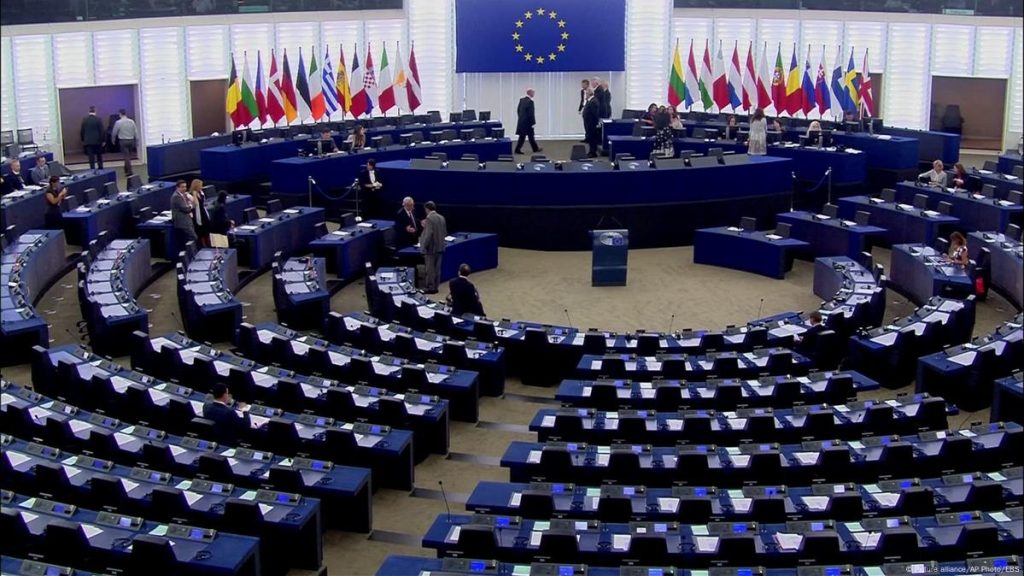Regulatory Uncertainty Increases: Lawmakers voted to reject the EU Commission’s benchmarking system for classifying countries by deforestation risk, raising concerns over further delays to the EU Deforestation Regulation (EUDR).
Business Compliance in Limbo: The current system’s flaws—outdated data and insufficient risk tiers—could complicate due diligence for importers and exporters handling commodities like cocoa, timber, and soy.
Mounting Political and Industry Pushback: The European People’s Party (EPP) demands a “no risk” category and revised methodology, reflecting growing discontent among farmers, foresters, and EU member states.
In a significant blow to the European Commission’s anti-deforestation strategy, the European Parliament voted to reject the EUDR’s proposed country risk classification system—a key component underpinning its due diligence regime for imported and exported goods linked to deforestation.
The motion, spearheaded by the European People’s Party (EPP), passed with 373 votes in favor, 289 against, and 26 abstentions. It cited critical flaws in the methodology, notably the use of outdated data that “does not accurately reflect the current realities in the countries concerned,” and the failure to account for “current land-use dynamics and forest degradation.”
“The Commission’s list misrepresents the situation in many countries and creates unnecessary burdens for farmers, foresters, and industry,” said MEP Alexander Bernhuber, who tabled the motion. “A new ‘no risk’ category must be introduced for countries with stable or expanding forest areas. This is how we make EU rules more fair and effective.”

The EU Deforestation Regulation (EUDR), introduced in 2021, aims to eliminate deforestation-linked products from EU markets. It mandates companies to trace key commodities—such as palm oil, beef, timber, cocoa, coffee, rubber, and soy—back to the plot of land where they were produced, ensuring they were not grown on deforested land post-2020 and comply with local laws.
A central feature of the regulation is its benchmarking system, classifying countries into “low,” “standard,” or “high risk,” with differing levels of due diligence obligations. However, MEPs argue that the three-tier structure is too simplistic. The EPP had previously pushed for a “no risk” category in negotiations, but it was excluded from the final agreement with the European Council.
The list currently classifies only four countries—Belarus, North Korea, Russia, and Myanmar—as “high risk,” while deforestation hotspots like Brazil, Indonesia, and the Democratic Republic of Congo fall under the “standard risk” label. All EU member states were categorized as “low risk.”
“Why [hasn’t the Commission] labeled Ivory Coast as a state who has a high risk for deforestation?” Bernhuber asked, referring to Commission posts citing illegal cocoa-linked deforestation there.
Environmental groups, while acknowledging flaws in the classification, warned that the vote could jeopardize implementation timelines. Greenpeace stated it is “virtually impossible that the Commission could produce a new methodology for classification of countries ahead of 30 December 2025,” when the EUDR is set to take effect for large companies.
RELATED ARTICLE: EU Parliament Adopts Plan for a Climate Neutral Building Sector by 2050
“We are aware that the Commission’s regulation has shortcomings, but the Commission has committed to review it in 2026,” said Greenpeace Forests Campaigner Sigrid Deters. “In the meantime, the EUDR must be applied by operators and enforced by competent authorities, according to the agreed schedule.”
The European Commission is not obligated to act on Parliament’s resolution. Nonetheless, pressure is mounting from EU agriculture ministers and industry stakeholders for a more pragmatic approach. Many member states have voiced concerns over the administrative burden of the current rules and have called for streamlined obligations.
MEP Jonas Sjöstedt from The Left accused the EPP of obstruction:
“They use progressive arguments but in reality they want to tear this down,” he said, likening the group’s maneuvering to a “moonwalk”—appearing to move forward while actually going backward.

EPP members insist they are not seeking to delay implementation but want swift technical revisions.
“The Commission has to come up with something new in September or beginning of October, because otherwise it’s just too late,” Bernhuber said.
The EUDR is scheduled to come into force in December 2025 for large companies, and in June 2026 for small and micro-enterprises. But with the benchmarking system under fire and no consensus in sight, the regulation’s future hangs in the balance—raising uncertainty for industries across the EU supply chain.
Follow ESG News on LinkedIn

